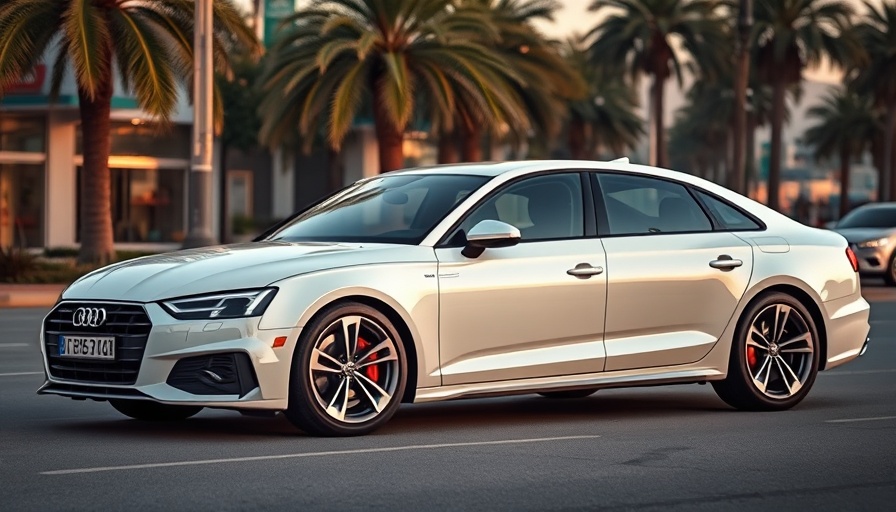
The Global Ripples of Tariff Threats
As the automotive industry remains a crucial part of the global economy, the warnings from German carmakers about the potential effects of former President Donald Trump's tariff threats resonate deeply. At a recent annual press conference, Hildegard Müller, president of Germany's VDA auto association, openly criticized the implications of these tariffs, which could escalate to as high as 25%. While aimed at protecting domestic production, the unintended consequences could hit American consumers the hardest.
How Tariffs Could Impact U.S. Consumers
The automotive market in the United States is already feeling the tremors of this tariff debate. Many vehicles sold in America either come from or incorporate parts produced in Mexico. With proposed tariffs targeting these imports, the price of cars could skyrocket, leading to inflationary pressures. Müller highlighted this paradox: Trump's promise to reduce inflation could be undermined by his own measures.
The Mexican Manufacturing Backbone
The role of Mexican manufacturing cannot be overstated; it serves as a pivotal source of assembly and key components for vehicles built in the U.S. Leading auto parts suppliers such as Bosch and Continental recognize the challenge posed by the tariffs, setting the stage for an uphill battle in maintaining production efficiency. This interconnectedness raises questions about the long-term sustainability of American automotive manufacturing if tariffs disrupt these channels.
Global Reaction: The Stock Market's Response
Global automakers are bracing for impact. Following the announcement of potential tariffs, stock prices for major automotive firms in Europe and Asia took a hit. Leading players like Volkswagen and BMW expressed concerns about the negative economic effects of these tariffs on not just their companies, but also American job security and car affordability. While foreign manufacturers would feel the burden, it's American consumers who ultimately bear the brunt of increased vehicle costs.
Long-standing Investments in the U.S. Market
German car manufacturers have made substantial investments in the U.S. market, reaffirming their commitment to American consumers. Volkswagen alone has poured over $10 billion into U.S. operations, including a major plant in Chattanooga, Tennessee, focused on electric vehicle partnerships with Rivian. These investments demonstrate a collaborative spirit that benefits the U.S. economy and highlights the interconnected nature of global manufacturing.
Facing the Music: How Tariffs Affect Everyone
The fallout from these tariffs isn't limited to German manufacturers. Japanese and South Korean automakers, such as Honda and Kia, also use Mexican facilities for their production processes. With stocks dropping in the wake of tariff threats, it's clear that the repercussions of global trade policies extend across borders. This reality calls for a reassessment of trade strategies that aim to prioritize local jobs without alienating global partners or creating divisive economic barriers.
In conclusion, the automotive industry's future appears increasingly complex as tariff threats loom over global trade. With direct implications for consumers, manufacturers, and stock markets alike, it is essential to recognize the delicate balance between protecting national interests and ensuring affordable access to vehicles in America.
 Add Row
Add Row  Add
Add 




Write A Comment